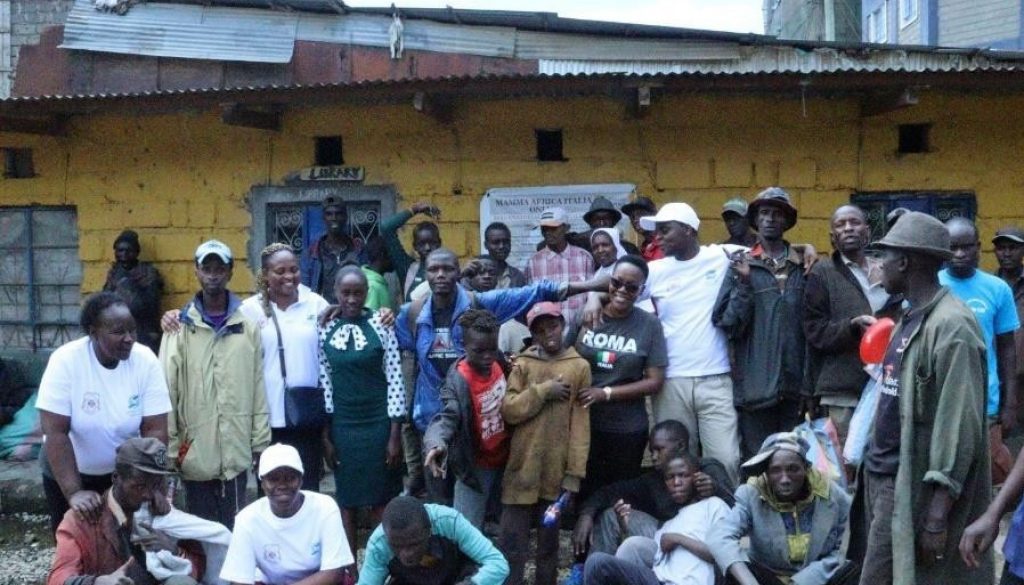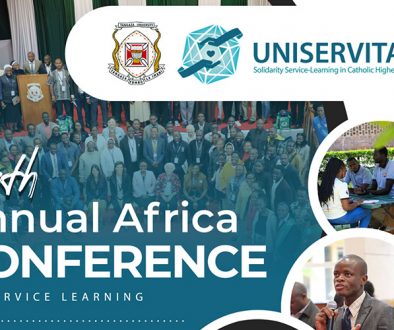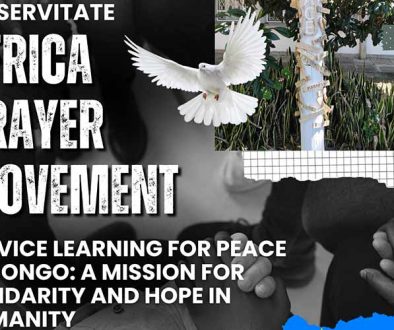Service Learning Integration In Teaching Learning And Research
1. Mamma Africa Italia Onlus, International Kenya – Mathare Project
An experiential visitation was undertaken by the Africa hub members to learn on how Service Learning is being integrated in teaching by a Theology lecturer. At TUC, integration of service learning in teaching, learning and research is a prerequisite methodology. Through this approach, the faculty members integrate the courses they teach with community service. Fr. David Karanja, a full-time faculty member at the School of Theology (SOT), responds to the needs of families living in the streets through provision of basic quality education and feeding programme to these families in Mathare slums of Nairobi.
The vision of Mamma Africa is to be the leading organization in the primary support and platform for addressing problems faced by people living in the slums. The mission is to empower slum families towards self-sustenance, advocating rights and dignity of the slum dwellers hence contribute towards a free and just society based on justice and equality.
The objectives of the project:
- Engage the families in the slum to work together on issues of common
- Provide transformative education/ Capacity
- Work in partnership with other organization, county Government & national government toward sustain- able project that uplift the lives of peoples living in
- Advocate on the rights and dignity of people living in the slum.
- Link children from the slum to the rest of the world through distant adoption and twining the schools
Mathare is the second-largest collection of slums in Nairobi, Kenya.
It stretches over 3 miles squared yet shelters over 600,000. The majority live at under 1 USD per day and most houses are fabricated out of metal sheets, wooden poles, cloth, and mud. Smooth tarmacked road and cemented footpaths are non-existent so dust perpetually fills the air alongside the smoke from burning rubbish at random intervals.
According to Fr. Karanja, most residents here live below the poverty line, with no education or job prospects. The socioeconomic opportunities and reliable sources of income are limited– particularly for the women, who are often burdened with the duty of single parenthood. Due to the simultaneous lack of basic amenities and resources, petty theft, prostitution and drug and alcohol abuse are harsh daily realities.
Children are the worst affected by these conditions. Unfortunately, most kids are not in school and loiter on the streets. Those in school sometimes receive their only meal for the day during the classes’ lunch break, served by the academic institution. Too many have become orphaned and thus live on the streets or, worse, have been taken in by strangers where we have no access to intervene or help. Some also suffer from stray diseases, such as: HIV, cholera, tuberculosis, and other acute chronic diseases like asthma, without the adequate availability of treatment.
According to our Fr. Karanja, a challenge they face is the socio-mentality within Mathare which threatens even the most strong- willed. The project has enabled the community to shift their perspective and believe in change through collaboration. They have been able to offer services such as: children sponsorship, women and men projects, and feeding program for street families Like any slum, crime is a recurrent feature although through the program, it has become less of a problem and now volunteers can walk safely with their bags with minimal risks so long as some attention is paid.
He noted that their impact is becoming noticeable and things are gradually changing as our success stories truly begin to standout within the community.




